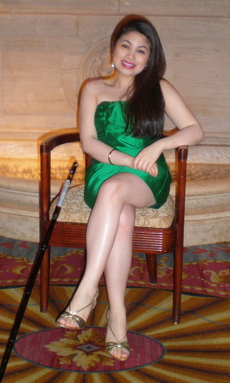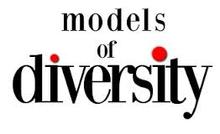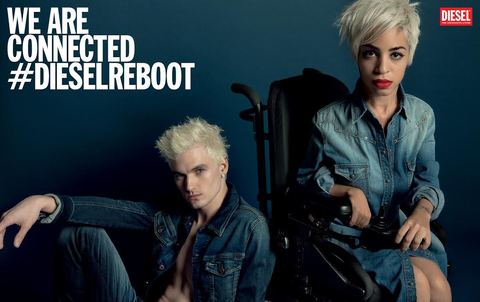
I carry a cane for myasthenia gravis, a neuromuscular autoimmune disease, that I was diagnosed with seven years ago. Every aspect of my life is affected by myasthenia. People with disabilities, or PWD, face a lot of challenges every day. We go to the grocery store and find that their disability accessible entrance is not working (again). We have to struggle with heavy doors at movie theaters and restaurants; I remember seeing Jersey Boys last summer with two friends who have muscular dystrophy and are both in wheelchairs. Thankfully, one of my friend's spouses attended. He is able-bodied. Without him, I'm not sure how we would have made it through the day we had planned. Having a disability or chronic illness (invisible or visible) affects our everyday lives, school, work, and relationships. The last thing we need is to be told we looked better before we got sick or that we would look better if we did not use canes, wheelchairs, or other kinds of walking assistance.
A disability is not something we can set aside. I can decide to carry my purple purse or my red one. But I have no control over whether my antibodies will attack my immune system, which results in signals not getting to different parts of my body (for example: my legs). Because those signals are intercepted, occasionally I fall down. Day to day, I do not know how my body is going to act. PWD cannot set aside their wheelchairs or other aids because it makes the person taking the picture uncomfortable. Furthermore, why must every picture be "perfect"? So it can go on Facebook and everyone can see how totally awesome our lives are? As health activist, Dawn M. Gibson (of Spoonie Chat) says, " Why is perfection the ideal? Being a fighter is an excellent ideal."
Beauty does not end where disability begins. While everyone has his or her own definition of beauty, the influence of the fashion industry (for better and for worse) cannot be denied. The average person sees 200 ads a day. Thankfully, there are signs of change on the horizon.
I interviewed Jillian Mercado, a 28-year old model from New York who has muscular dystrophy and is wheelchair bound. Mercado, who was recently signed to the iconic modeling agency IMG, made history when she appeared in Diesel's spring 2014 campaign. In addition to being a model, Jillian is the Creative Director for the online magazine, We the Urban. I asked her about why PWD have historically been excluded from the fashion industry.
Mercado said, "Honestly, I don't really fully understand some people: if there's something slightly different about another person, it's looked down upon. It's easy to say, they're different so they can't do this or that. It's a lot of negativity. Nobody has taken the full-on initiative to stand up to that. I'm fighting to change that mindset and do it in a very smart way: I'm capable of doing anything anybody else can and not have it be a pity story but an empowering, educating stance."
I spoke with another fashion trailblazer, Angel Sinclair, a former model from the U.K. and the founder of Models of Diversity (MoD). Since 2008, MoD has vigorously campaigned for diversity in fashion and beauty.
Sinclair said, "It's important that an industry, whatever country, represents the general public and people that buy the clothes. I think that people nowadays that are getting sick and tired of seeing models that are white, super skinny--there's not a variety...What is shocking is that a lot of disabled people love fashion and clothes. That designers are willing to take their money and not represent them is disgraceful."
 Sinclair said there are 11 million disabled people in the U.K. Sinclair's personal experience--raising a nephew who has cerebral palsy since he was 3 and having two grandchildren with learning disabilities (Asperger's and autism)--fuels Sinclair to keep fighting for the inclusion of PWD. Supermodel Christie Brinkley and Leslie Birkland (star of the docu-series Big Rich Texas) are two of MoD's biggest supporters. In the U.S., Models of Diversity USA has partnered with Global Inclusion, LLC to find models with disabilities.
Sinclair said there are 11 million disabled people in the U.K. Sinclair's personal experience--raising a nephew who has cerebral palsy since he was 3 and having two grandchildren with learning disabilities (Asperger's and autism)--fuels Sinclair to keep fighting for the inclusion of PWD. Supermodel Christie Brinkley and Leslie Birkland (star of the docu-series Big Rich Texas) are two of MoD's biggest supporters. In the U.S., Models of Diversity USA has partnered with Global Inclusion, LLC to find models with disabilities.
Sinclair applauded New York Fashion Week (NYFW) for including models with disability two years in a row. In February of 2015, Jamie Brewer became the first model with Down Syndrome to walk the catwalk at NYFW. On September 13, 2015, another model with Down Syndrome, 18-yo Madeline Stewart, will walk the runway.
Beauty comes in different packages. Fashion and the world will be richer when we realize that illness and beauty are not mutually exclusive.
Written by health blogger and speaker, Jessica Gimeno. This article appeared in its original form on Fashionably ill: The Sick Woman's Stylist. You can follow her on Twitter, Facebook, and Instagram.
